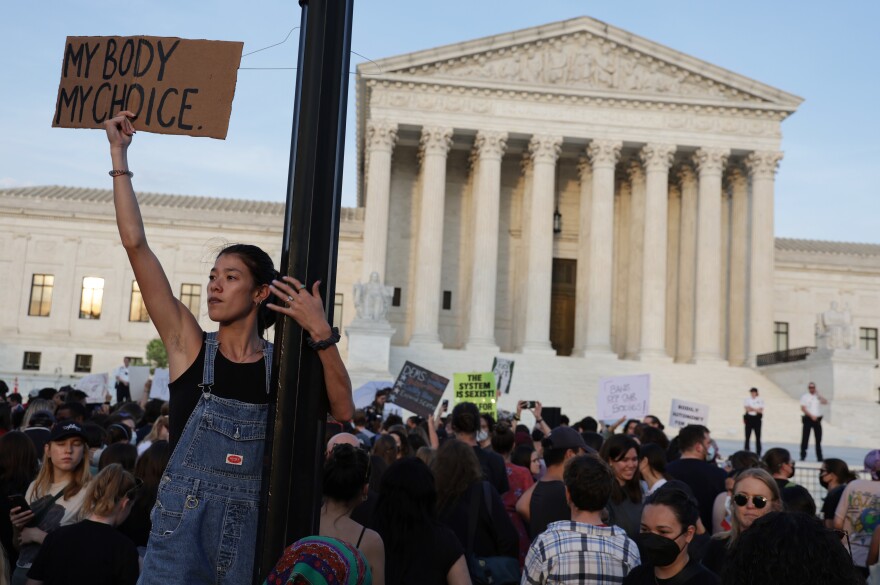The leaked draft opinion from the Supreme Court indicating it could overturn Roe v. Wade means that millions of women in more than half of U.S. states could either lose the ability to get an abortion or see their access drastically rolled back.
It would be a major shift in abortion law in the U.S., but human rights advocates say such a move could also weaken reproductive rights across the world.
The move would "damage the global perception of the United States," Amnesty International's secretary-general, Agnès Callamard, said in a statement. It would also "set a terrible example that other governments and anti-rights groups could seize upon around the world in a bid to deny the rights of women, girls and other people who can become pregnant," she said.
Many countries, including some with large Catholic populations, have actually been making it easier to get an abortion in recent years.
Ireland legalized abortion in 2019, Argentina legalized it in 2020 and Mexico's Supreme Court voted to decriminalize abortion last year. In February, Colombia's highest court legalized abortion until 24 weeks of pregnancy.
But with the U.S. poised to upend the nearly half-century-long constitutional protection for abortions, advocates warn that repressive governments across the globe could use the move to justify future crackdowns on their citizens.
The Supreme Court's draft opinion is a "step in a very dangerous direction for everyone in the United States and a frightening signal to authoritarians around the world that they can strip long-established rights from their countries' people," said Licha Nyiendo, chief legal officer of the group Human Rights First, in a statement.
It could lead some countries to adopt new restrictive laws, said Tarah Demant, Amnesty International's interim national director for programs, advocacy and government affairs. Other countries could point to the U.S. to legitimize their own policies restricting reproductive rights, she told NPR.
For example, she said Poland, which has faced significant criticism from the European Union over its near-total ban on abortion, would be able to argue that the U.S., a close ally, has done much the same.
"You're looking at an emboldened anti-rights movement," Demant said.
She said striking down Roe v. Wade would also erode the steady progress made in the global push for greater abortion rights.
"Women and people who can get pregnant have been fighting for decades globally for the most basic right to health care, to be able to control their bodies," Demant said.
"And here, the United States, where we have had this basic protection, though it's never been enough, is rolling it back. What a slap in the face to the generations of people who fought for this right. To backslide at this level ... it's unimaginable," she added.
Copyright 2022 NPR. To see more, visit https://www.npr.org.


